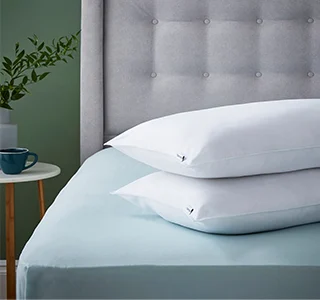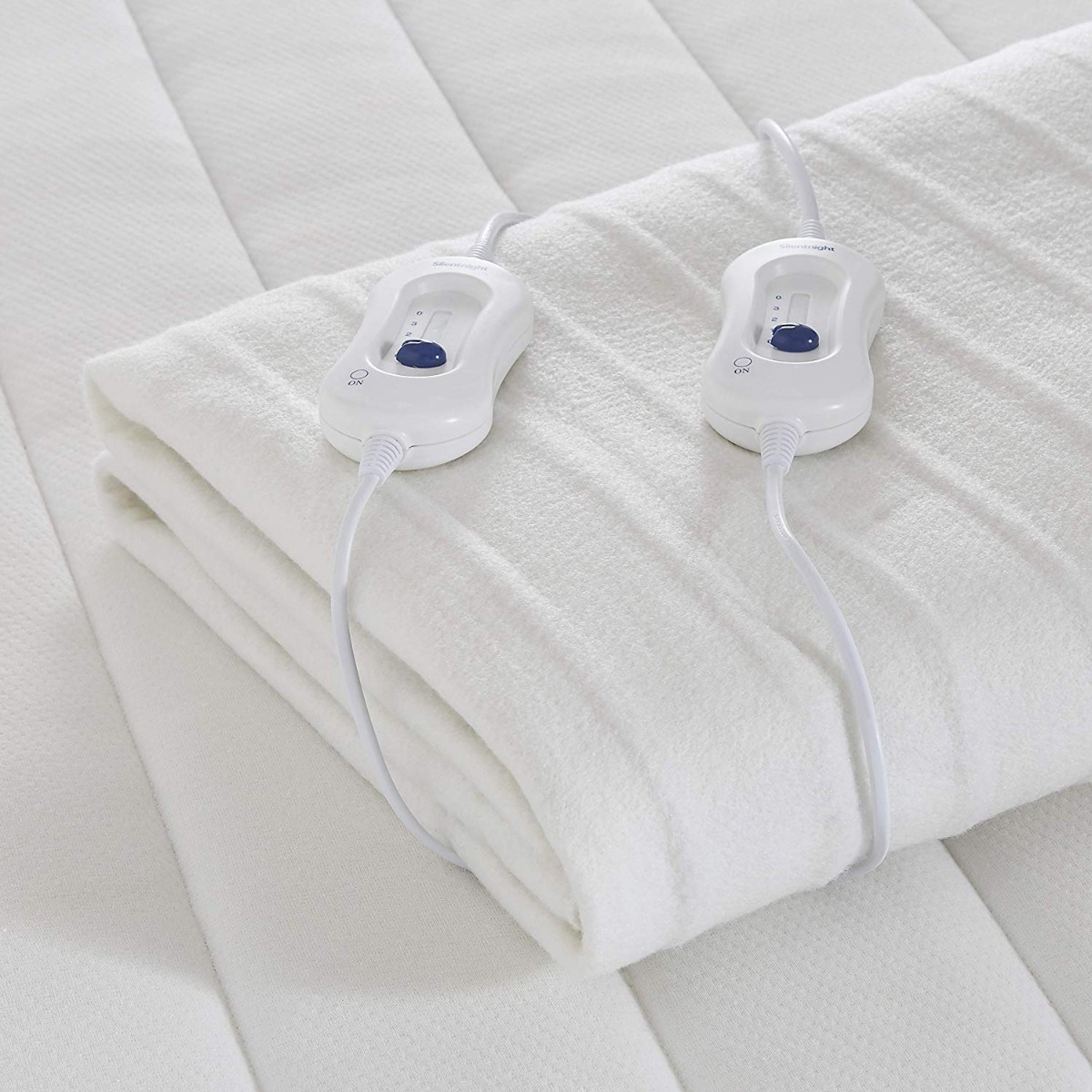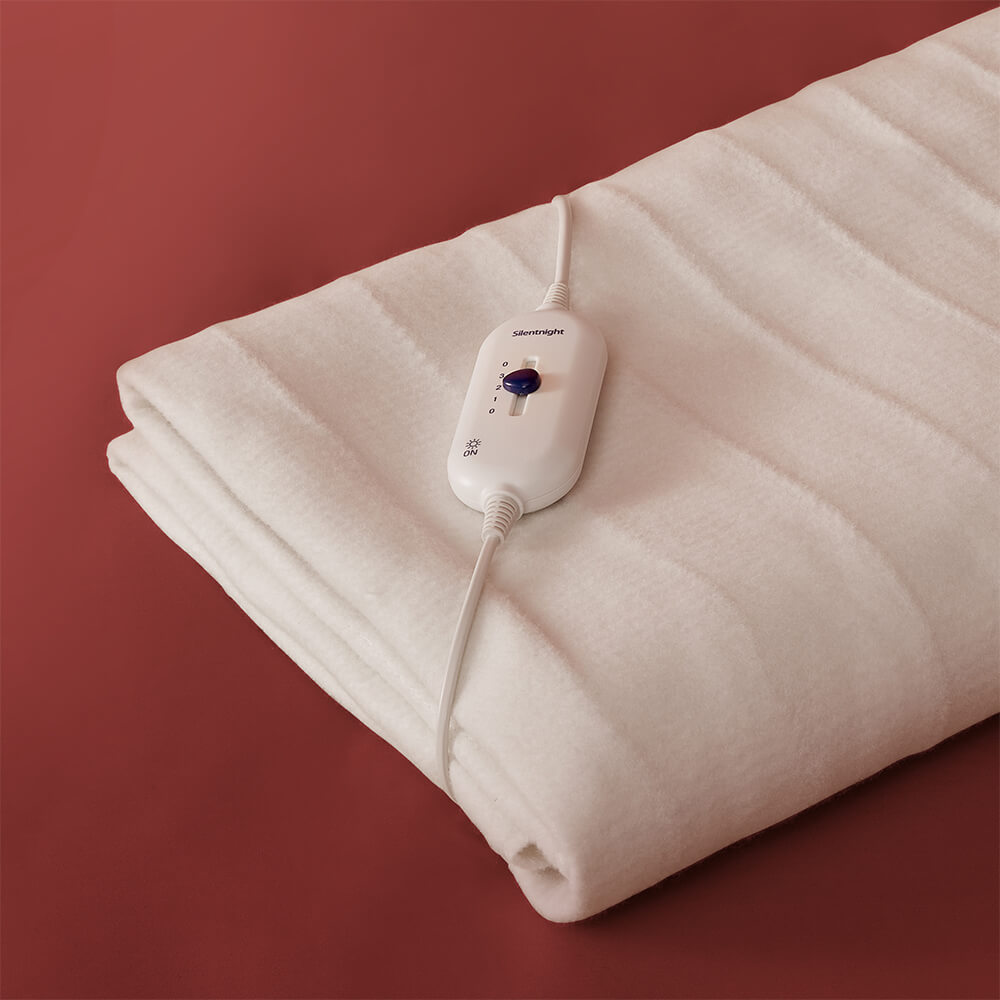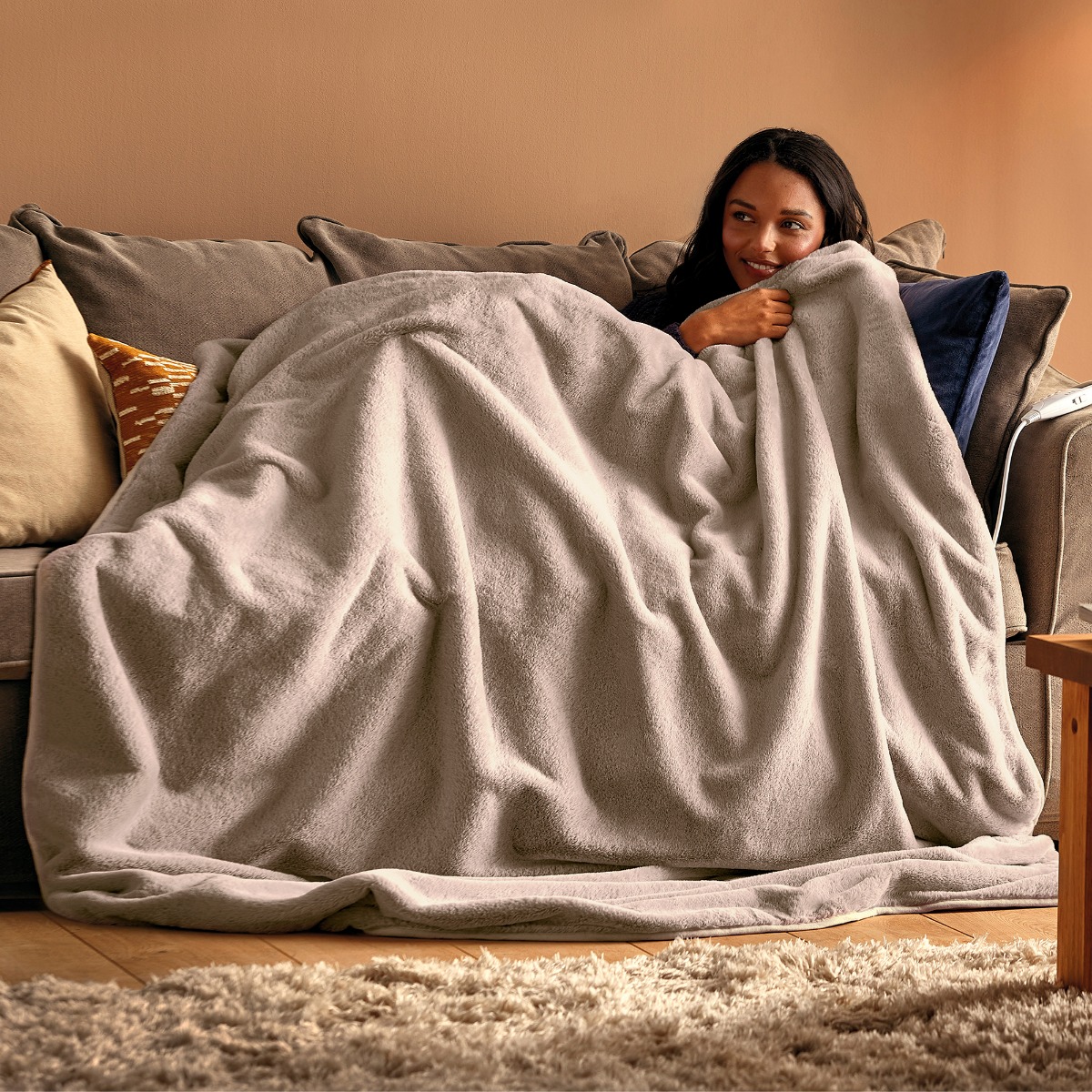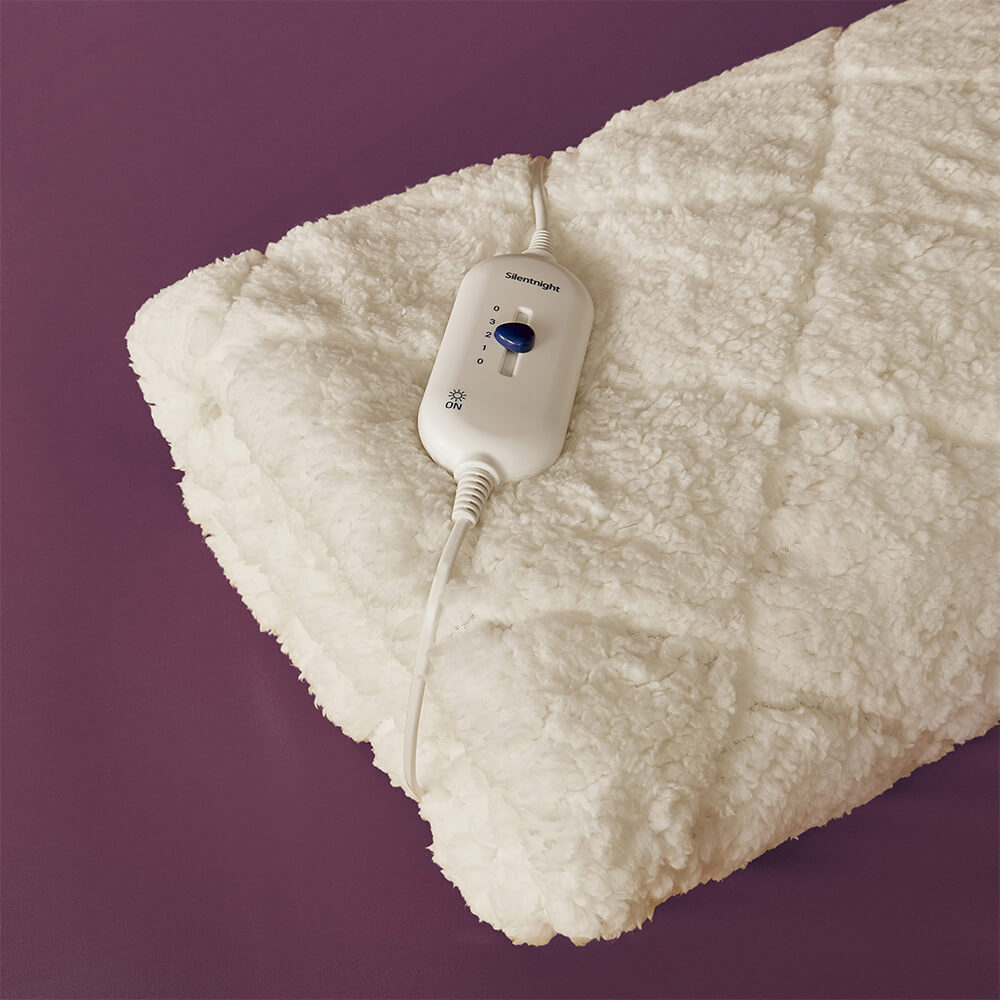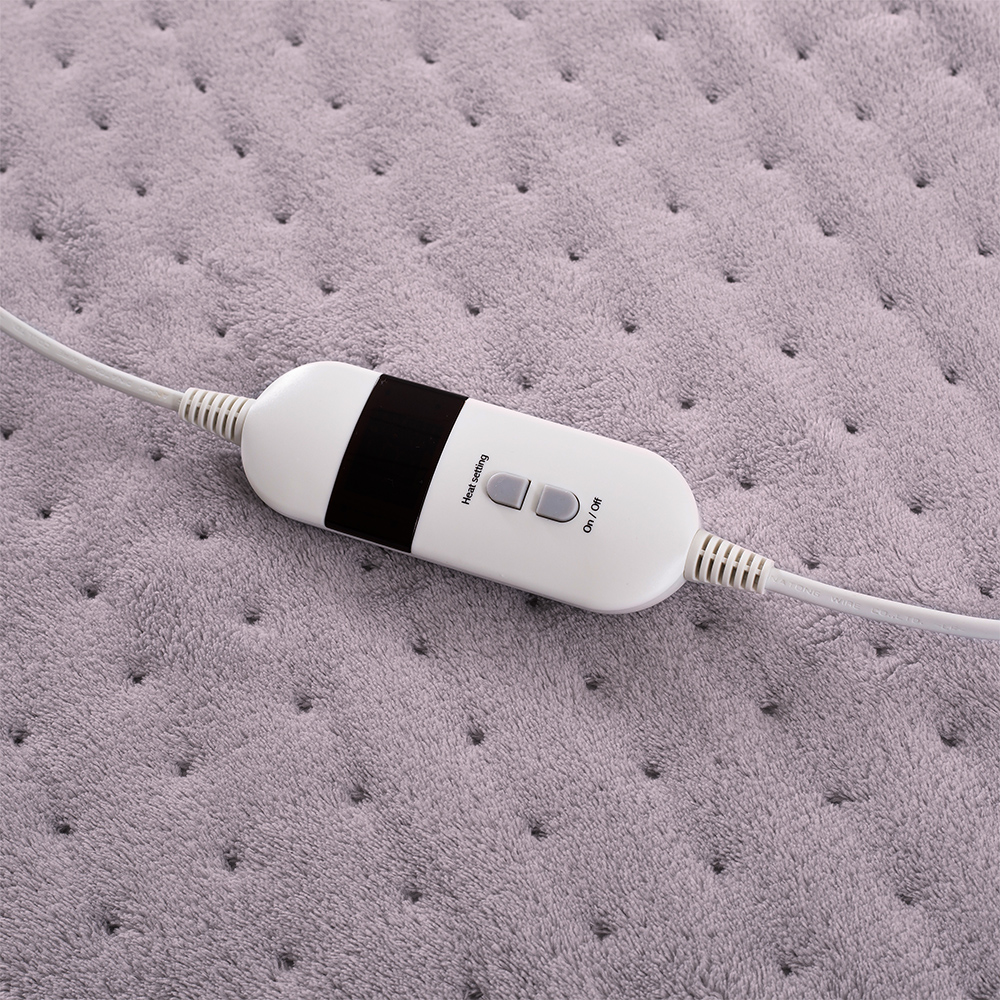how to sleep with a blocked nose or a cold
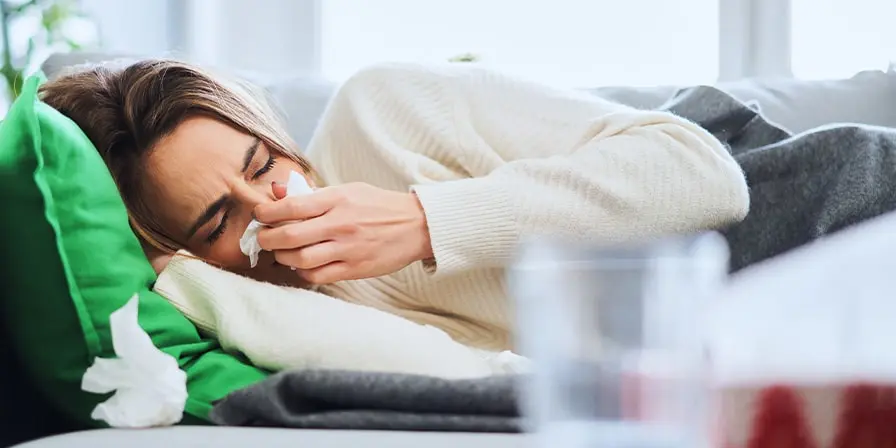
When you’re suffering from a cold, getting the sleep you need can be difficult for sure. One minute you’re burning up, the next you’re shivering, and then it’s hard to forget the blocked nose, sore throat, and muscle pain. Although sleep is what you need to feel better, sadly there’s no fast overnight cure for the common cold. But there are some simple yet effective things that you can do to alleviate the symptoms, helping you to sleep better when you’re under the weather.
This guide will show how you can change your sleep environment when you’re suffering from a cold or flu. From creating the right sleep environment to the best sleeping position, we share our top tips for how to get to sleep with a cold.
why can’t I sleep when I have a cold?
The common cold is caused by a viral infection, with symptoms that include a blocked nose, and a sore throat. You’ll most likely experience more mucus when you’ve got a blocked nose as this is caused by inflamed blood vessels within your nasal passageways.
When you lie down, your blood pressure changes and the position means that an increased amount of blood goes to the top of your body, which in turn worsens the inflammation in the blood vessels, making your nasal passages smaller. This is why when you are sleeping with a cold, you feel more congested when you go to bed, and you’ll find it harder to breathe too, so it can be more of a challenge to get the sleep you need. A cold often causes discomfort and body aches, making it challenging to find a comfortable sleeping position. Remember to take care of yourself, try some soothing remedies, and know that a good night's sleep will come once you've recovered.
the best position to sleep in when you have a cold
When you have a cold, finding a comfortable position to sleep in can be a challenge. The best position to sleep in when you're congested is to elevate your head slightly with an extra pillow. This helps to alleviate nasal congestion and promote easier breathing. Additionally, lying on your side can also be beneficial, as it can help prevent mucus from pooling in your throat. Remember, a good night's rest is essential for your body to heal, so snuggle up and sleep well.
Making some simple adjustments to your sleep routine can go a long way to help ease symptoms during the night. However, if symptoms worsen after a week and you experience a fever and have difficulty breathing, make sure to see your doctor, as it could be a sign of a more serious infection.
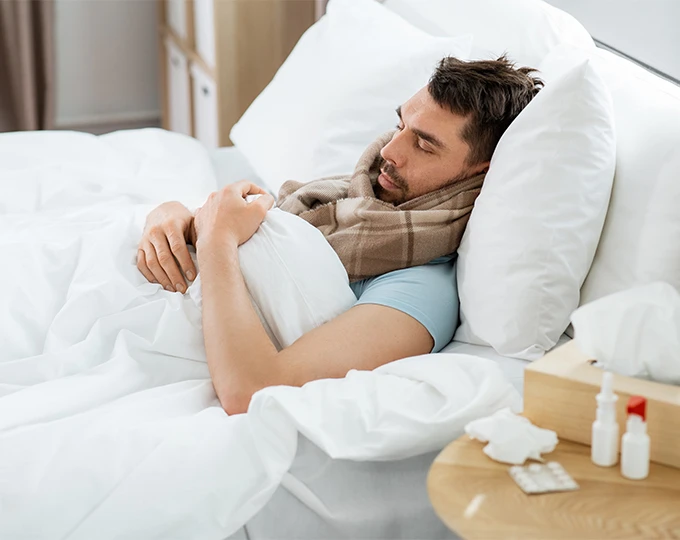
does sleeping with the window open help a cold?
Sleeping with a window open may provide some benefits when you have a cold. Fresh air circulation can help maintain a healthy environment, reducing the risk of germs and preventing stuffiness when sleeping with a blocked nose. However, it's important to keep yourself warm and comfortable to avoid worsening symptoms. Balancing fresh air intake and personal comfort is key to determining if sleeping with a window open can help with your cold.
how to sleep with a blocked nose and cold
Fear not, sleepyheads. Getting better sleep with a cold is possible. Follow our top 10 tips and discover how changing your sleep routine can help soothe your symptoms and alleviate discomfort, making it easier for you to drift off.
Create the right sleep environment - Creating the right sleep environment when you have a cold can make a big difference in your comfort and recovery. Keep your bedroom cool, but not too cold, and ensure the air is humidified. Dim the lights and make your surroundings are cosy for a restful night's sleep.
Use a humidifier – If you’re struggling to breathe, using a humidifier can help - this adds moisture to the air and helps to clear nasal passages.
Take nighttime cold medicine - This will make you feel more relaxed before going to bed and alleviate symptoms during the night. Make sure you avoid medication that contains caffeine, as this will keep you awake and alert.
Have a warm shower before bed - Not only is a warm shower a good way to relax before bedtime, but the steam from the hot water can also help ease congestion, making it easier to breathe.
Use a nasal decongestant – A nasal spray can reduce the inflamed tissue in your nose. It decreases the production of mucus, allowing you to breathe more easily when you’re trying to sleep.
Drink a hot beverage - A hot beverage or even a lovely soup is a great way to open your nasal passages. Before going to bed, try soothing chamomile tea to aid with a sense of calm and relaxation. Avoid too much sugar and caffeine, some herbal teas contain a high amount of caffeine.
Avoid tossing and turning - If you can’t get to sleep after around 20 minutes, do something relaxing such as reading or listening to soothing music rather than feeling irritated tossing and turning. Then, when you start to feel sleepy, go back to bed and hopefully you’ll enjoy a more restful sleep.
Sleep on your side - Sleeping on your side when you have a cold can help alleviate congestion and promote easier breathing, as it allows your airways to remain open and helps drain mucus more efficiently.
Soothe your sore throat - With a cold often comes a sore throat, so try gargling with salt water, which will help soothe and provide some relief (and potentially prevent an infection from getting worse).
Avoid alcohol - It's best to avoid alcohol when you have a cold as it can worsen your symptoms, dehydrate you, and interfere with your immune system's ability to fight off the infection. Stay hydrated and rest instead for a better night’s sleep.
can you sleep off a cold?
Absolutely. While sleep won't directly cure your cold, it plays a vital role in helping your body fight off the infection. Restful sleep allows your immune system to work efficiently, promoting faster recovery. So, make sure to get plenty of restorative sleep and let your body heal itself if you can.
Remember, rest is crucial for your recovery. So, snuggle up with warm blankets, sip on soothing teas, and indulge in some self-care. Before you know it, you'll be back to dreaming peacefully and waking up refreshed. Sweet dreams and feel better soon.
















